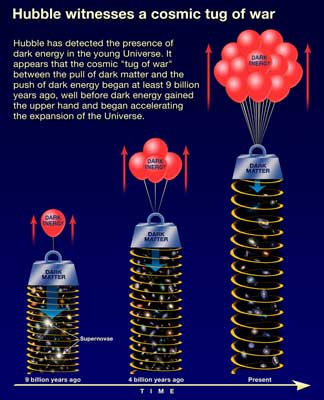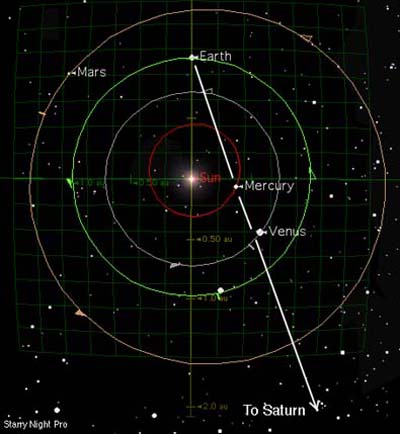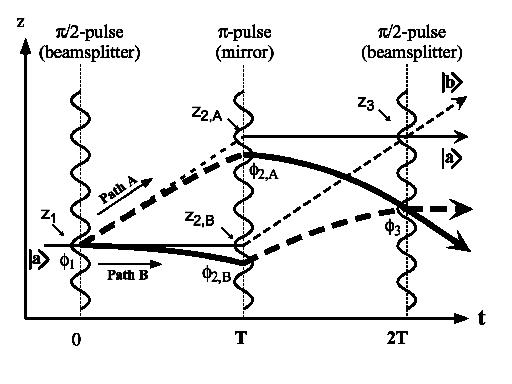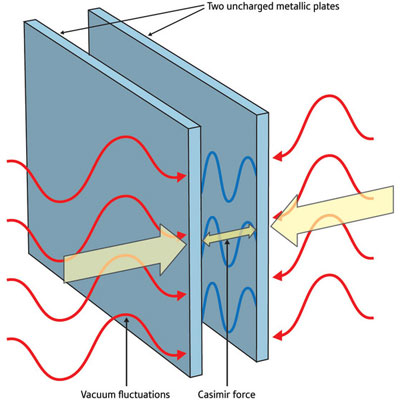Free energy will promulgate a forward leap in human progress akin to the discovery of fire. It will bring the dawn of an entirely new civilization -- one based on freedom and abundance. -Sterling AllanOf course, when Sterling Allan talks about free energy, he's talking about natural energy from sources like wind and solar, not the violating-the-laws-of-thermodynamics type of energy.

There is, of course, no such thing as truly free energy, or energy that we can take out of nothing and use for something, which is why perpetual motion machines not only don't work, but are physically impossible. (Although it is amusing to try to get as close as possible.)
But as many of you have noted about dark energy, there is a non-zero amount of energy that seems to be inherent to space itself. As the Universe expands, it appears to create more space, and hence, more energy.

Now, the energy density is tiny. So tiny that we didn't even discover the existence of dark energy until 1998, and if you were to compare it to the energy stored in, say, the mass of a human body, you would have to spread a human being out over the entire inner solar system (to fill a sphere the size of the orbit of Mars) just to get the same density as dark energy, which is about two protons per cubic meter.

Now, while energy is ill-defined in general relativity, we understand energy and momentum well enough (as well as more complicated properties of metric spaces, which I will not go into) to know that dark energy should have the following properties based on our current observations:
- It should have a constant energy density everywhere in space.
- It should be impossible to add to or take away from that energy density.
- That energy density should also remain constant throughout time.

Using a hypothetical improvement on a technique called atom interferometry (illustration above), they are proposing that changes in dark energy density could lead to changes in atomic motions, and could hypothetically exert a force on atoms.
Now, there are all sorts of reasons to believe that dark energy doesn't exert a force on atoms. Namely, the following big ones:
- Dark energy, as far as we can tell, affects the expansion of space and nothing else, meaning it shouldn't exert a force on atoms.
- You can only exert a force (whether you're dark energy or not) if your field changes from point-to-point. On the other hand, dark energy is observed to be a constant everywhere in space.
There is so much we don't understand about dark energy, and how the Universe's expansion on the largest scales relates back to what we can observe in a laboratory on Earth that this is possibly the most exciting prospect to come out concerning dark energy all year!

So do I think this is likely to produce anything new? No, probably not. There are many good reasons to believe that we know what we're talking about, but that doesn't really matter. What matters is that -- in order to know anything for sure -- we need to do the experiment. This idea deserves to get a little bit of a buzz, if for no other reason than we need to throw ideas around about dark energy, and be open to the notion that what we're seeing is so bizarre it could really turn our view of the Universe on its head.

But there still isn't any truly free energy out there, not even if dark energy does change from point-to-point. Which is too bad... because if there was some, I could then move to phase 3. I'll keep dreaming.





Comments
Regarding dark energy, I think people would understand it much better if you said 'space-expanding awesome' rather than 'dark energy', which implies it acts on matter.
Posted by: Katharine | February 23, 2010 8:35 AM
Dark energy reminds me of luminiferous aether. How long before the Michelson and Morley of dark energy appear on the stage?
I'm glad you put a picture of a turtle in this post.
Posted by: John P | February 23, 2010 2:20 PM
Like Katherine, I get thrown off by the term dark energy. Vacuum energy or the cosmological constant or "what makes Edwin Hubble a really cool dood" are less confusing, but that's just me. The Casimir effect shows that vacuum energy can actually "do" something to real stuff on an observable scale, which is why I like it so much. I want a home science kit with the Casimir Effect included !!! And a cloud chamber.
Posted by: Douglas Watts | February 23, 2010 5:32 PM
You said to exert a force, a field needs to change from point to point. Then how does a uniform electric or magnetic field exert a force on a charged particle?
Posted by: Crux Australis | February 23, 2010 6:02 PM
Electric fields aren't uniform, they still have a gradient depending e. .g on the distance of the particle to the plates generating it.
Posted by: Mu | February 24, 2010 10:00 AM
@Crux Australis: Ethan didn't mean a "force field" like the electric or magnetic field, but a "potential field" (notice that he talks about energy!). As you perhaps know, both the electric and the magnetic fields can be expressed as derivatives of potentials. If the potential is constant, the electric and/or magnetic field will be zero, and there won't be a force.
Posted by: Bjoern | February 24, 2010 10:36 AM
Crux Australis,
I am sorry for being so vague. You are correct: a uniform electric field and a uniform magnetic field are both perfectly capable of exerting forces on charged particles.
But dark energy is "the other" kind of field: a scalar field, with a magnitude only, as opposed to electric and magnetic vector fields, with a magnitude and a direction.
If you take the gradient of a scalar field, you get a vector field, which is necessary to exert a force. (Forces require a direction.)
Glad we got to clarify (and thanks to Bjoern and Mu for the help)!
Posted by: Ethan Siegel | February 24, 2010 11:16 AM
Ethan,
You'll be pleased to know that I have found dark matter, however it was only after I completed step 1 of your 3 step plan.
:(
Posted by: crd2 | February 25, 2010 3:08 AM
I apologize if I missed the post, crd2 and Dr. Siegel, but was the plan
1. Magically transport yourself to the edge of the universe and become an all-knowing being who can detect such things as 'dark energy' and 'dark matter'
2. ???
3. PROFIT
?
Posted by: Katharine | February 25, 2010 8:52 AM
So does dark energy as a non-directional, scalar field require an infinitely large Universe in which it operates? Or is the Universe so large, but not infinitely large, that the directionality is for all intents and purposes, undetectable? Or does Hubble red-shit expansion make it impossible for any two sufficiently distant parts of the Universe to be unable to communicate with each other, thereby destroying any possibility of directionality?
Posted by: Douglas Watts | February 25, 2010 3:35 PM
err ... red shift ....
my bad.
Posted by: Douglas Watts | February 25, 2010 4:51 PM